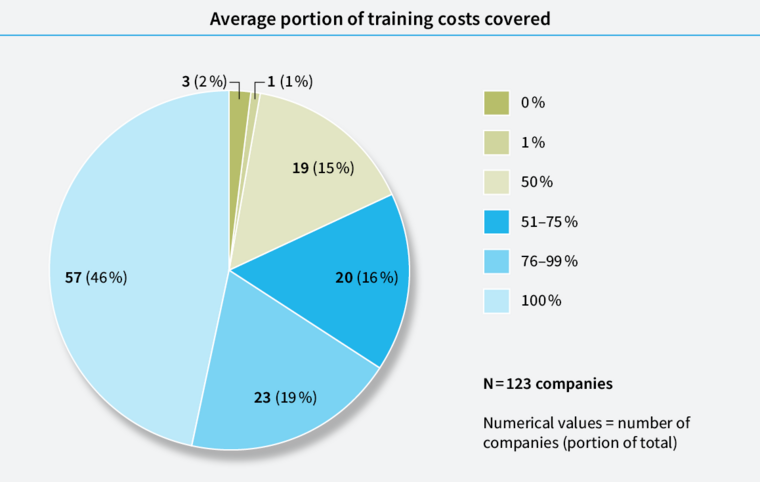First benchmark for working conditions in IT sector
In collaboration with industry association swissICT, syndicom commissioned the research company Ecoplan to develop the first benchmark for working conditions within the IT sector. As part of its analysis, Ecoplan created an online survey in which the largest possible number of IT companies operating in Switzerland could participate and provide information about aspects such as salaries, holiday regulations and so on.
Among the 132 IT companies that took part in the survey are businesses from all different size categories, ranging from microbusinesses to large companies. Allocation data based on areas of activity also reveals that the majority of IT companies operate in the areas of programming and consultancy.

Over the last few years, the trade union syndicom has been able to build up a wealth of expertise regarding the specifics of the IT industry and is happy to take any questions from interested companies. Competitive working conditions are crucial to both recruiting and retaining talent. It is beneficial if a company can demonstrate that it has entered into a social partnership, as a signal to employees internally and externally, for example during public procurement.
The results from the benchmark at a glance
The proportion of staffing costs in IT companies averages 62% of revenue, though there is significant variation among the answers. Over a third of respondents indicated that their staffing costs equal less than 60% of their revenue, whilst more than one in five companies reported staffing costs in the region of 80% to 90% of revenue.
Severance pay, according to the results of the analysis, is rarely awarded by IT companies, with only 4% reporting having such a mechanism in place. Allowances for redundancy benefits also seem to be very rare in the IT industry, with only 13% of the 132 companies who took part in the study providing such allowances.
62% of revenue is spent on staffing costs. This demonstrates the high premium placed on staff within the IT industry. There is, however, a risk that IT workers will only be awarded redundancy benefits as the exception, rather than the rule, in the event of downsizing for economic reasons. When restructuring, socially responsible discharges are first and foremost the company’s responsibility.
The vast majority of IT companies use the flexitime model, whereby an employee’s working week amounts to almost 42 hours on average. 40 companies reported working hours of 40 hours per week, whereas 71 companies reported working hours of 40.5-42 hours per week and 21 companies reported working hours of 42.5 or more hours per week.
4 out of 5 companies provide 5 weeks of annual leave, with over 55s receiving a further week.
The working time models and target working hours seem to have improved to allow IT companies to remain attractive to a younger workforce. The IT industry is destined to move towards new working hour models, as current examples from Switzerland and the rest of Europe demonstrate.
Based on the answers given in the online survey, employees of IT companies invest on average a solid 8 days per year in training. 45% of companies report a figure of 3 to 5 training days per year. At one in five companies, the average figure is over 10 training days per year. All bar three companies contribute towards training costs. 57 companies, constituting a relative majority of 46%, cover all training costs (see pie chart).
It is good news that eight days per year of training are being invested in on average and that the majority of companies are paying all training costs. Constant training and professional development are therefore crucial to counteracting the ever bemoaned skills shortage. This is also manifested in syndicom’s social partnerships in that a minimum entitlement to training is embedded in an ever increasing number of collective employment agreements.

The topic of working from home has been on everyone’s lips since the very start of the COVID-19 pandemic and the associated protective measures implemented by the Federal Government. Since the start of the first lockdown, on average 84% of employees at the IT companies that took part in the survey have been working from home. At one in four companies, as much as the entire workforce worked from home. Around a quarter (26%) of the companies provided reimbursement for home working expenses in 2020. These contributions remained below CHF 1,000 at all but three companies. A good half of the companies provided reimbursement of between CHF 100 and 500.
Just under two thirds (66%) of companies would like to define a minimum number of days which employees have to work from the office during the period after the pandemic; a relative majority of these companies (37%) anticipates this figure to be 2.5 to 3 days. By way of contrast, 95% of the companies are not expecting to implement a minimum number of home working days.

